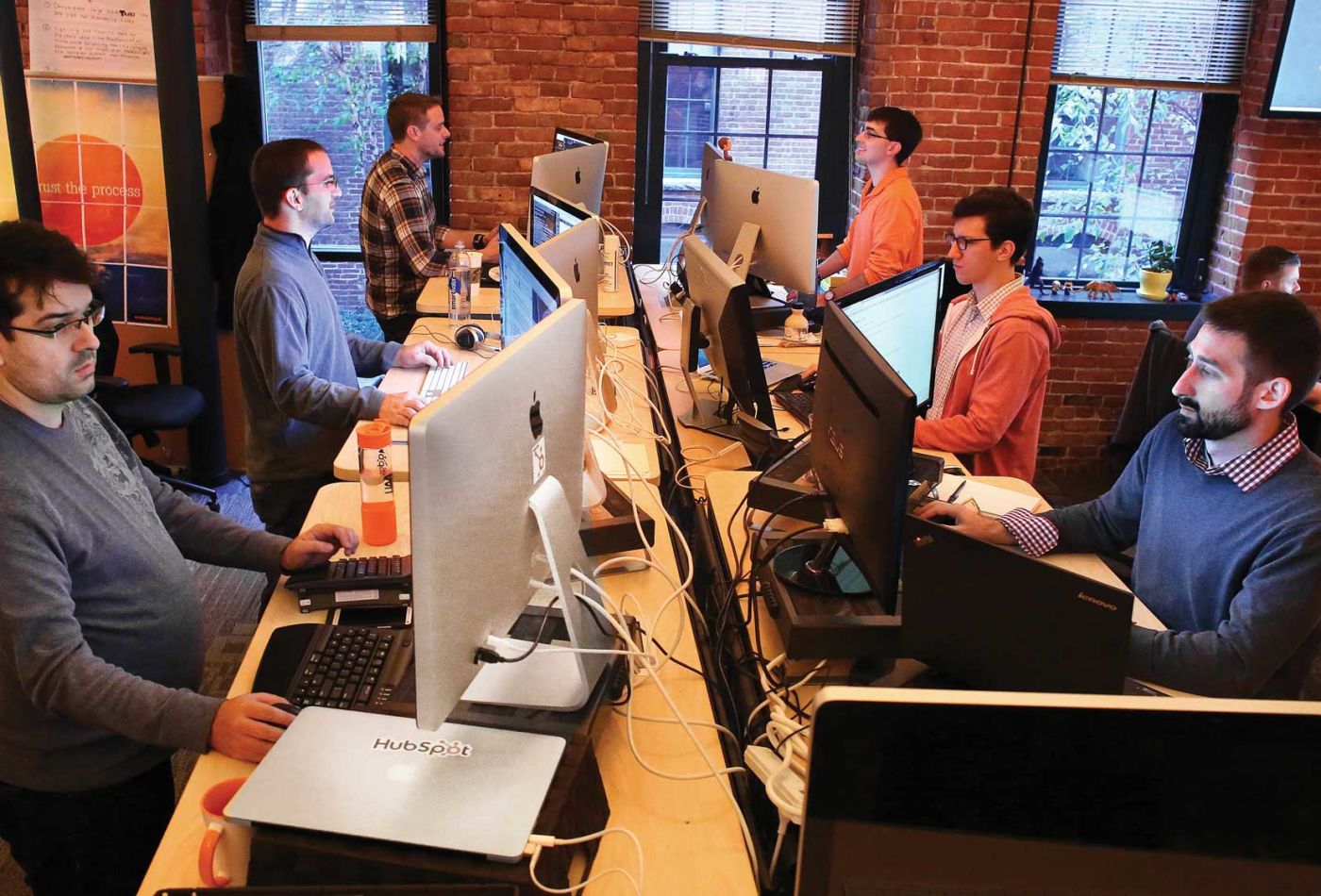It wasn’t all that long ago that working remote was the exception and not the rule for a lot of organizations. Today, in the shadow of the COVID-19 pandemic, thousands of employees are working from home. And while most of those workers have adapted quickly, some are not quite comfortable with this new normal.
This period of working virtually is actually a great trial run for those who want to remain actively employed. Remote work will become a standard way of working in the not too distant future as employers realize the benefits of a distributed work force. But what do companies need to do to prepare for this new work model? Here are the five leading trends of the future of work already at play today.
1) Social and professional distancing
There’s no doubt that the COVID-19 will have a lasting impact on how people go to work. Many of us will no longer go to a designated office space after the pandemic has ended because work has been forever changed. Employers and workers will have found that the flexibility that serves them during this precarious time will also be beneficial going forward.
Remote work experts like Michael Solomon and Rishon Blumberg, co-founders and managing partners of 10x Management, say the “future of work has arrived.” Patricia Strach, interim executive director at the Rockefeller Institute recently said that “this forced work-from-home experience is showing us that work-from-home arrangements are a viable strategy for many businesses and that this is likely to be true even after the crisis is over.”
2) Digitization now more than ever
It doesn’t take much to know that the future of work is digital. With the exceptions of some careers such as healthcare professionals and retail clerks, we are digital beings. Remote workers expect the most current technology assets in order to do their jobs and those businesses that don’t adapt to digitization simply won’t make the turn. Companies will also need to consider new technologies such as Artificial Intelligence (AI) and Machine Learning and their impact on the future of work.
In addition to creating new jobs, AI will also help people do their jobs better—a lot better. At the World Economic Forum in Davos, Paul Daugherty, Accenture’s Chief Technology and Innovation Officer summed this idea up as, “Human plus machine equals superpowers.”
3) Work has to mean something
The workers of the future won’t be interested in just completing 40 hours of activity somewhere each week. And they’ll even move beyond the traditional meanings of how they define a career. Future workers will need their work to mean something.
It will have to have purpose and meaning for them to engage. Companies will be in the position of trying to entice the right workers which is a complete work around from workers trying to get the attention of companies during an employment search. Future workers will be more discretionary in their choices for everything from where they live to what work they will do. It all has to have a bigger meaning than just getting a pay check.
4) No more jobs for life
Change is the only constant for today and that trend will definitely continue as the future extends. As the Millennials take over the work force, their philosophies and work styles will dominate. Technology, expectations and the gig worker culture will transform the job market as well as the way people view their work lives and careers. Already there is more fluidity in the way companies approach work and how employees move between projects and roles. Traditional work styles will fall away as will the notion of having a job for life.
5) Fluidity and the global talent marketplace
Digital talent marketplaces have created a transparent job market where skilled pros are well aware of their worth and are willing to hold out for their ideal work situation. In more traditional work dynamics, an employee worked diligently to stay employed. Tomorrow’s top performers will jump to better opportunities as they present themselves, creating a certain amount of insecurity for employers.
Savvy businesses will need to carefully engage employees appropriately in order to retain valuable workers who know that there could be something more in line with their professional goals just around the corner or on the other side of the world.
The movement into remote work should be a wake-up call to companies that haven’t embraced it yet because it will soon be standard operating procedure for hundreds of employee roles. Leaders should familiarize themselves about other future work trends for their industry and adapt their styles as they relate to all the changes coming in the way workers think, live and want to work.
Live Assets IT Staffing Solutions is a boutique IT Staffing/Recruiting firm specializing exclusively in building IT teams of excellence for the Information Technology sector.
![]()
![]()
![]()
![]()
Author: Roy Solomon
